Dame Nellie Melba GBE (1861–1931), world-renowned soprano, was born Helen Porter Mitchell in Melbourne. She first sang in public at age six and studied piano as a child. At the age of twenty she went with her widower father to Mackay, where she married Charles Armstrong and had a son in 1883. A year later she left her husband, returning to Melbourne to study under Pietro Cecchi. She travelled to London with her father in 1886 and began lessons in Paris with Mathilde Marchesi, on whose advice she adopted the name Melba, derived from her native city Melbourne. After making her début in Brussels in 1887, aged 26, she appeared regularly at Covent Garden, where she maintained a private dressing room and gave her final performance in 1926. Over the same period, mobbed everywhere by fans and enjoying the attention of many lovers, she made sensational tours of the USA and Europe. On Melba's successful tour of Australia in 1902, vast crowds gathered to see her. Partly resident in Australia from 1909 onwards, she sang the national anthem at the opening of Parliament House, Canberra in May 1927, during the period in which she made so many farewell appearances that the phrase 'doing a Melba' came to mean making repeated announcements that one is leaving, without actually departing. On her grave in Lilydale Cemetery, Melbourne, is the farewell uttered by Mimi in La Bohème: 'Addio, senza rancor' ('Goodbye, no hard feelings'). Dame Nellie Melba appears on the Australian $100 note and a Canberra suburb is named in her honour.
Portraits
Dame Nellie Melba
an unknown artist
Portrait sketch of Nellie Melba 1902
Hugh Ramsay Dame Nellie Melba GBE age 41
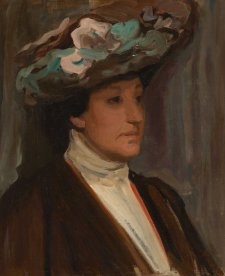
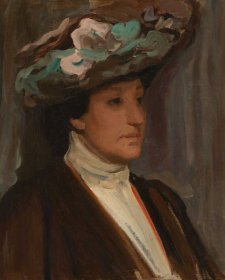
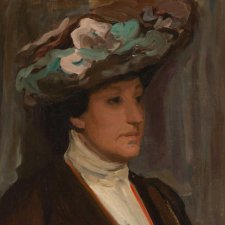
Nellie Melba
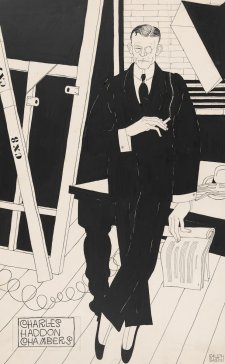
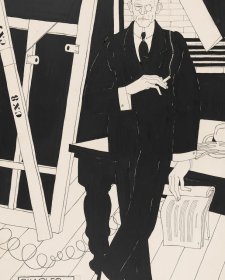
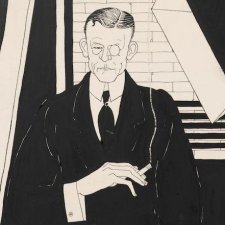
Suave
Charles Haddon Chambers the Australian-born playboy playwright settled permanently in London in 1880 but never lost his Australian stance when satirising the English.



Doodles of the Diva
Three tiny sketches of Dame Nellie Melba in the NPG collection were created by the artist who was to go on to paint the most imposing representation of the singer: Rupert Bunny.
Show all 3 Portrait magazine articles


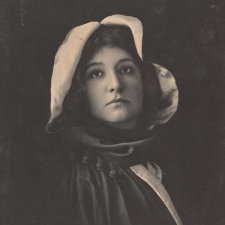
Fame or celebrity?
A question lately cropped up in connection with Madame Melba as to whether fame and celebrity are not essentially the same thing. My feeling is that they are different.




